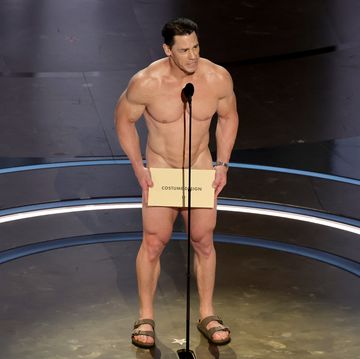It’s a rare thing for a movie to be both as loved by teenage boys as it is by learned film critics, to be celebrated for its quotability as it is for the cinematic mastery of its director. And yet Martin Scorsese’s Goodfellas, 25 years old this month, has managed just that.
If it’s on, you watch it. If you catch it halfway through on a movie channel late at night, you stay up until the very end, until Ray Liotta is standing in his dressing gown and Sid Vicious doing My Way plays us out.
It’s a film that gets you by the throat and never takes the pressure off, exactly as Scorcese envisioned it when he first read Nicholas Pileggi’s bestselling book Wiseguys, on which it is based.
“To begin like a gunshot and have it get faster from there, almost like a two-and-a-half-hour trailer,” Scorsese explained. “It’s the only way to capture the exhilaration of the lifestyle and get a sense of why people are attracted to it.”
As well as the glamour that initially sucks us in, Scorsese was also drawn to the mundanity and everyday brutality of mob life, and it’s this attention to detail that makes the film what it is. It's hard to believe now that Scorsese was in the midst of a career low after The Last Temptation Of Christ before starting on Goodfellas.
This is a director in total control of everything at his disposal to film the story he was born to tell, from the astonishingly powerful (and expensive) soundtrack, through to the flawless casting and rounded off by Thelma Schoonmaker's visceral editing.
In its two and a half hours, Goodfellas has more stand-out scenes and quotable lines than any film has a right to: the garlic slicing, the helicopter chase, De Niro smoking at the bar to a soundtrack of Cream’s 'Sunshine Of Your Love'. And none of them even make it into our top five. Yes, that’s how good it is.
***
5 | The Restaurant Tracking Shot
It's probably the most famous tracking shot in cinema, when Henry takes Karen through the rear entrance of The Copacabana Club in New York to a soundtrack of 'Then He Kissed Me' by The Crystals. Scorsese wanted to get across a sense of the everyday privileges that gangster life afforded, the practical perks and thrills beyond the suits and rolls of cash. It's about “Henry’s whole life being ahead of him, doors opening to him," says Scorsese. "It’s his seduction of Karen and it’s also the lifestyle seducing him".
4 | The Pistol Whip
The casting of Ray Liotta as Henry Hill was a long and tricky process as Scorsese attempted to persuade producer Irwin Winkler that he had enough of the everyman about him to pull the audience into this seedy world, but also had the required steel to be believable as a gangster. This scene in which he takes revenge on a neighbour who upsets his wife is shockingly violent but with a deliberate tinge of twisted morality which sucks you into the allure of being able to mete out justice as you see fit. It also leaves us in no doubt that Liotta is one of them, not us.
3 | The Phone Box
In screen time, De Niro’s Jimmy Conway is very much a support player to Pesci's scene-stealing psycopath and Liotta's sympathy-drawing everyman, but as a teenager experiencing Scorsese for the first time it was De Niro who stood out, his presence on the edge of the action enough to keep your hackles up and your senses sharp in case you missed a look, a wink, a mumbled comment or just a drag on a cigarette, as if each mannerism might reveal some telling plot turn or character flaw.
This short scene though, when Jimmy learns about the killing of his friend Tommy Devito (Joe Pesci), is electrifying. In barely more than a minute, he travels from assertive control to confusion, disbelief, rage, desolation and childlike vulnerability. The moment when Ray Liotta touches his shoulder in sympathy and De Niro pulls fractionally away, unable to accept, says more about this character than any dialogue ever could.
2 | The Clown
There can be few more quoted scenes in gangster movie history. The idea for this scene came from Joe Pesci's own encounters with mobsters as a kid and Scorsese knew it would be a clever way of getting across DeVito's psycho credentials early on in the movie. To add to the impact, Scorsese didn't tell the others in the scene what it was about so the reactions of surprise are tellingly genuine as Pesci makes Ray Liotta squirm, in fear of his life over a mis-guided compliment. It's at this point we start to truly understand the world we're in and the lunatics which inhabit it.
1 | The Shine Box
Rich and layered enough to almost be a short film in its own right, the Billy Batts murder scene has the crackling dialogue of a Billy Wilder-scipted comedy combined with the tension of a tightly-hewn thriller. We can see Tommy DeVito's rage boiling to dangerous levels from the start and it's clear it's not going to end well. That it ends as swiftly and violently as it does comes as much of a surprise to us as it does to Billy Batts, played by Frank Vincent who has never lived it down: "Wherever I go, anytime I go anywhere, they tell me to go home and get my shine box."













